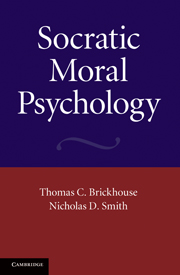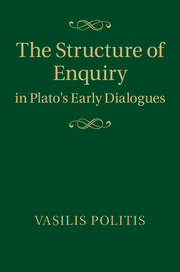Socratic Moral Psychology
Socrates' moral psychology is widely thought to be 'intellectualist' in the sense that, for Socrates, every ethical failure to do what is best is exclusively the result of some cognitive failure to apprehend what is best. Until publication of this book, the view that, for Socrates, emotions and desires have no role to play in causing such failure went unchallenged. This book argues against the orthodox view of Socratic intellectualism and offers in its place a comprehensive alternative account that explains why Socrates believed that emotions, desires and appetites can influence human motivation and lead to error. Thomas C. Brickhouse and Nicholas D. Smith defend the study of Socrates' philosophy and offer an alternative interpretation of Socratic moral psychology. Their novel account of Socrates' conception of virtue and how it is acquired shows that Socratic moral psychology is considerably more sophisticated than scholars have supposed.
- Carefully examines all of the existing interpretations of key texts on the topic
- Provides a new reading that makes the Socratic view far more philosophically plausible than it has been supposed to be
- Offers a new defence for the developmentalist approach to interpreting Plato, as well as new criticisms of alternatives to the developmentalist approach
Product details
January 2012Paperback
9781107403925
286 pages
229 × 152 × 16 mm
0.42kg
Available
Table of Contents
- Introduction
- Acknowledgements
- 1. Apology of Socratic studies
- 2. Motivational intellectualism
- 3. The 'prudential paradox'
- 4. Wrongdoing and damage to the soul
- 5. Educating the appetites and passions
- 6. Virtue intellectualism
- 7. Socrates and his intellectual heirs: Plato, Aristotle, and the Stoics
- Appendix. Is Plato's Gorgias consistent with the other early or Socratic dialogues?
- Bibliography of works cited
- Index of passages
- General index.




